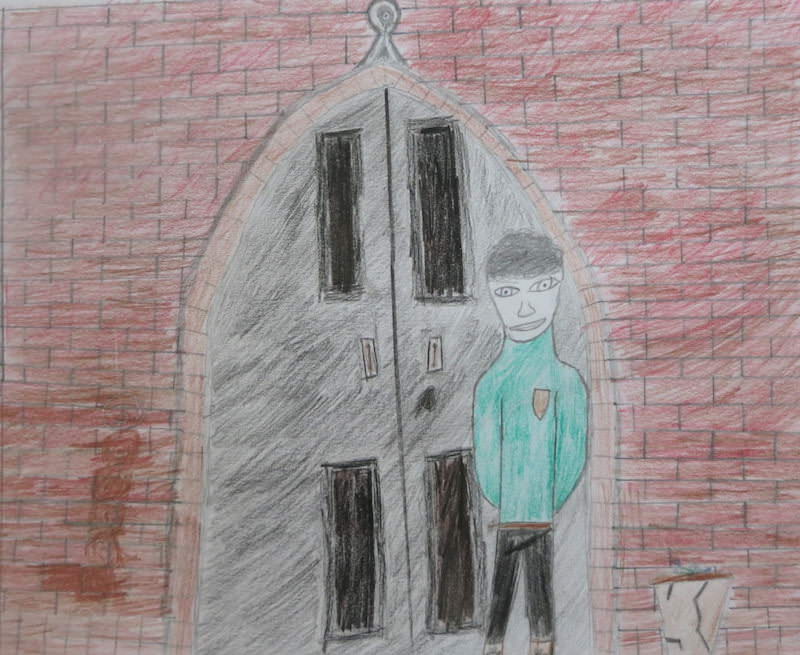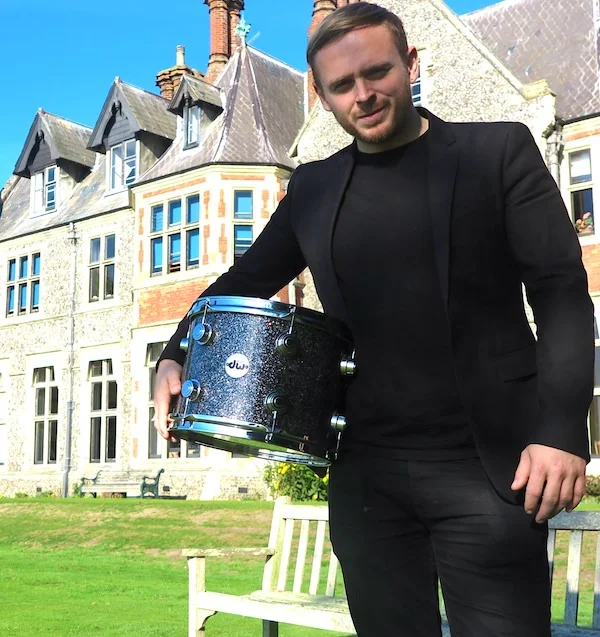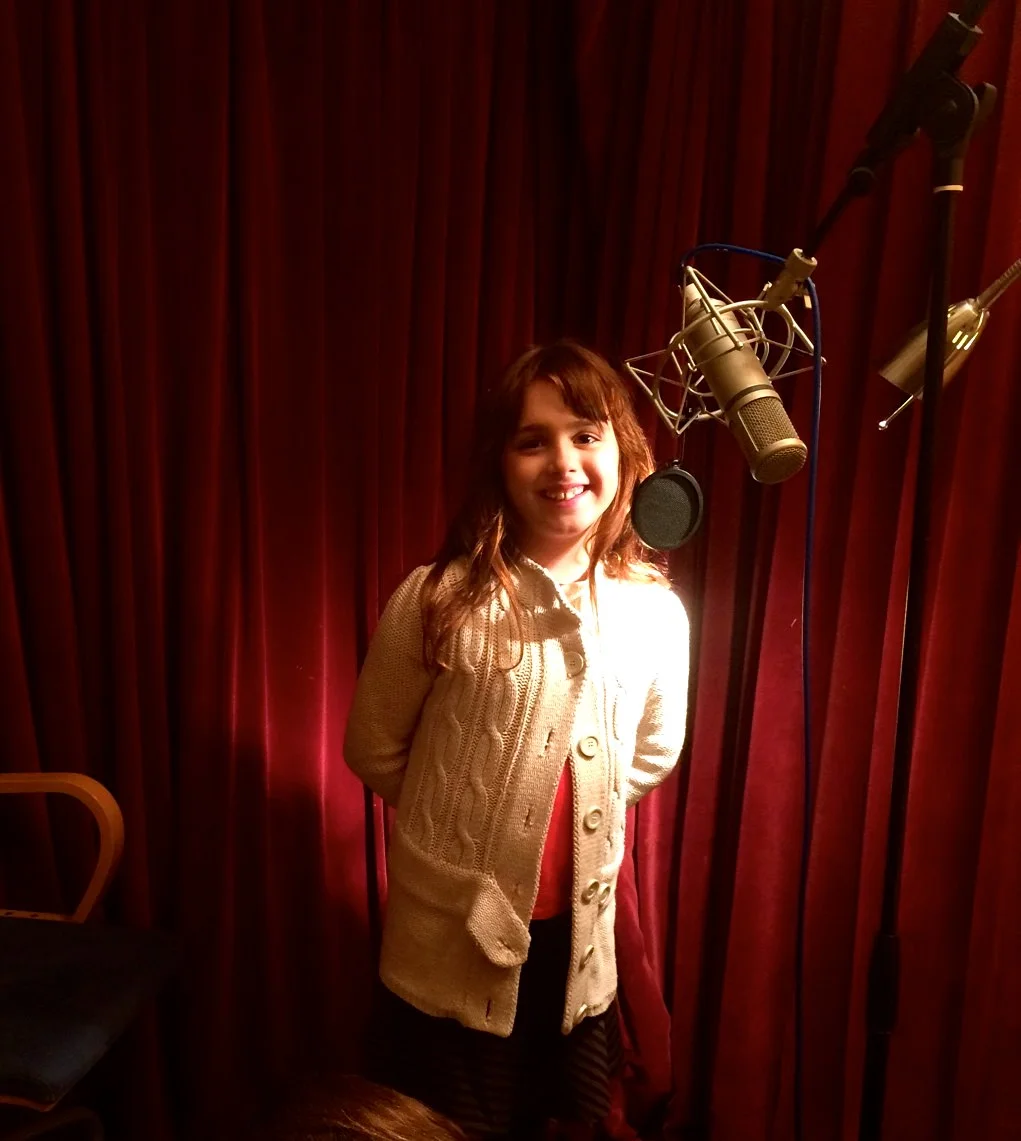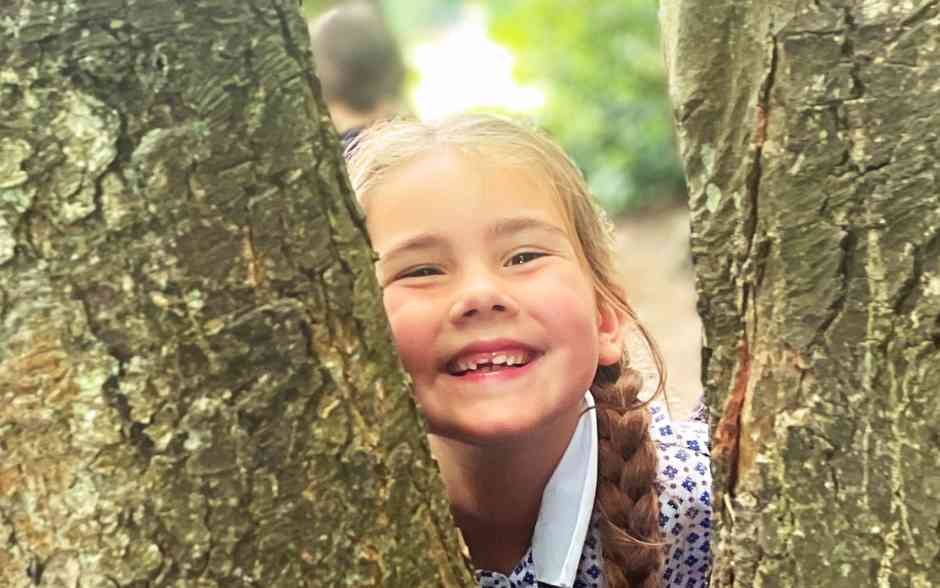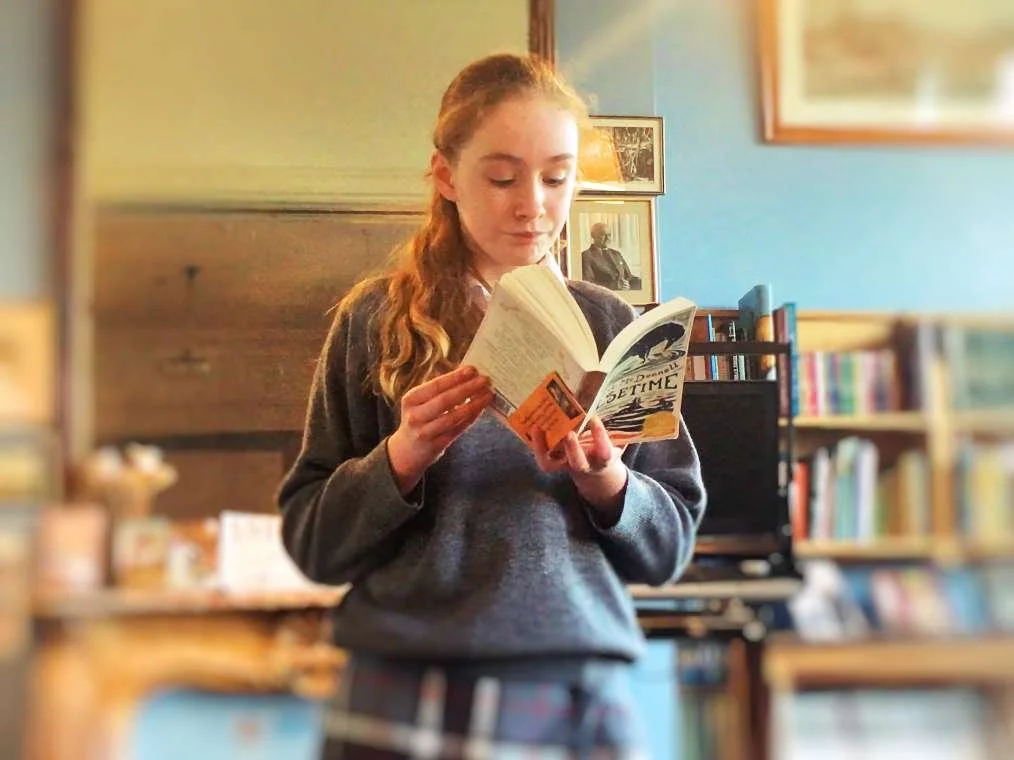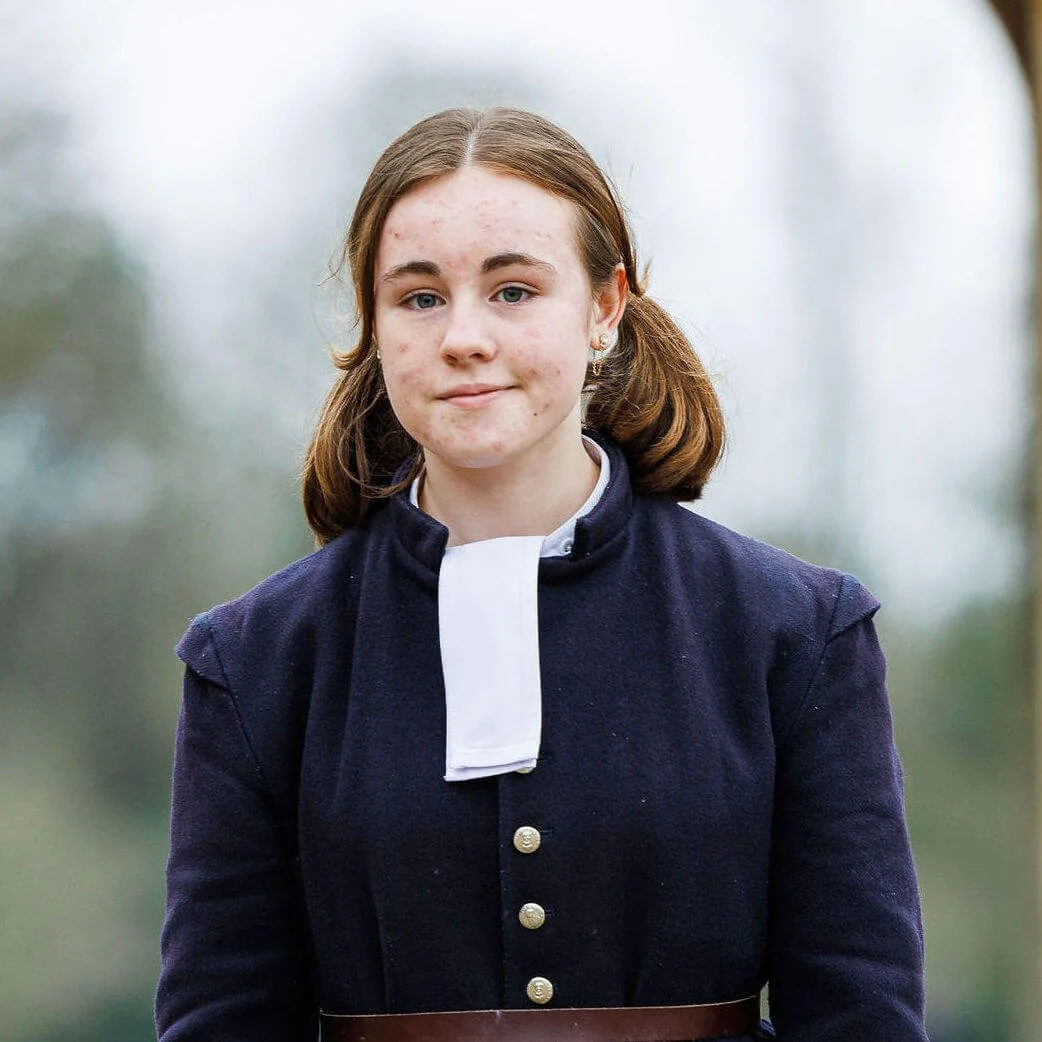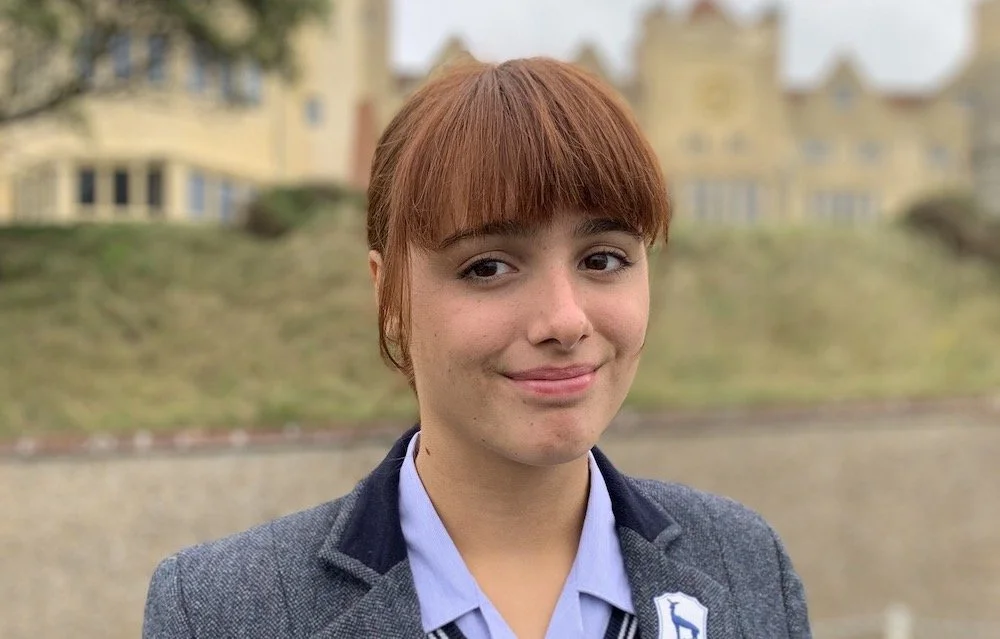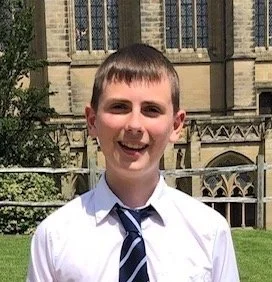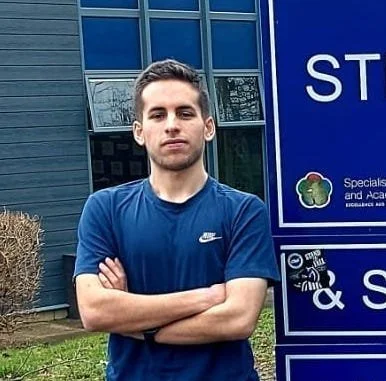The short story based upon Sompting Abbotts by best-selling author Alex Preston
/Head of Art Mrs Andrea Tewkesbury with the students whose work was chosen to illustrate Alex Preston's work. From left: George, Ewan, Chloe, Jonny and Oli
We are delighted that international best-selling author Alex Preston has given us permission to re-publish his short story, Wyndham Le Strange Buys the School, which uses Sompting Abbotts Preparatory School as its setting. The story was included in the nation's favourite annual guide to the short story: Best British Short Stories in 2016.
Alex Preston's first novel, This Bleeding City, was published by Faber and Faber in March 2010. The novel won the Spear's Best First Novel Prize, the Edinburgh International Book Festival Readers' First Book Award, and was chosen as one of Waterstone's New Voices 2010. It has been translated into 12 languages. His second novel, The Revelations, was published in February 2012, while his third, In Love and War, was featured on BBC Radio 4's Book at Bedtime. His fourth, As Kingfishers Catch Fire, met with critical acclaim and was described by The Guardian as "a sumptuous labour of love". and nominated one of The Guardian Best Books of 2017.
"It was 100% Sompting Abbotts that I was imagining in the story," said Alex Preston, who is an old boy of the West Sussex independent school.
It seemed appropriate to make a link between the work of Alex, as a former pupil of Sompting Abbotts, with that of the present pupils.
Andrea Tewkesbury, the school's Head of Art, invited pupils in Year 8 to illustrate the short story in whatever medium they saw fit. You can see some of their lovely work below.
Alex was delighted with the students' artwork. "This is just a wondrous thing. Thank you so much," he said. "I thought the illustrations were marvellous. Do pass on my thanks to your very gifted students."
The renowned literary scholar and critic Charles May reviewed Wyndham Le Strange Buys the School in 2016.
Describing it as "one of his favourite short stories ever", he said: "This is a lyrical story of four veterans of WWI, damaged by the war, who come together at the school they once attended. It is the lyricism of the story that makes it work. The key phrase repeated throughout is "as if," for the men live in an "as if" world of fictional reality at the school. One by one, the men begin to awaken from some terrible dream to "feel the firmness of the living world," and one by one they begin to leave. When only the narrator is left, he realises that he needed this retreat even more than the others: "a haunt away from a world that carries on as if the war never happened".
We would like to extend our thanks to Alex Preston for allowing us to re-publish the story. "I found it beautiful, quite poignant," says Sompting Abbotts Preparatory School Principal Mrs Patricia Sinclair.
Wyndham Le Strange Buys the School by Alex Preston
“Do you chaps remember Wyndham Le Strange?” Ginger looks up at us from his paper. I stir my tea, frowning, until an image comes to me – this is how my memory works now – of a pale, ribby boy with the clear eyes of a husky, standing at silly-mid off.
“You know, I think I do,” I say. Bingo just sits there, hands flat on the table, staring at the misted windows of the café. “He’s taken an advertisement in the Mail,” Ginger continues. “Here, let me read it.” He is silent for a moment. “Well, I say. It’s about us.”
“Us?”
“He’s asking us to contact him. Old Somptonians. Anyone who was there between o-six and fourteen.”
“I suppose that is us. What is it that he wants? A reunion?”
We sit listening to the omnibuses rumbling on the Tottenham Court Road, visible only as passing smudges of red on the fogged glass. It has been raining forever, or so it seems, thin icy rain that insinuates, drenches, chills to the grey bone. Wars shouldn’t end in November, I think, stirring my tea again as I let the trailing edges of my mind brush against that half-remembered figure: Wyndham Le Strange.
“Wasn’t there something about the father?” I ask. “Some tragedy?”
Ginger strokes the wispy moustache that alleges itself on his upper lip. “Yes,” he says, “now you mention it, there was.”
Bingo floats his fist above the table, opens it and drops three sugar cubes, which crumble on impact.
“That’s right,” Ginger says. “He was killed in ‘sixteen. A Zeppelin raid, poor blighter. Farringdon Road, it was.”
“When is this reunion?” I ask.
“Next Thursday. I do think we ought to go.” Ginger looks peppier than he has for a while. He was happiest of any of us at school, a fine student, a better cricketer, in love with the quiet rhythms of the place. Where Bingo and I couldn’t wait to get out – university, London, the world! – I fancy that Ginger might have cheerfully stayed there forever. Even now, with his hair in flying retreat, the moustache, the scar that strings a yellow arc between ear and mouth, there’s something bouncingly schoolboyish about him.
On Sundays, I visit my mother in Dorking. This particular Sunday happens to be my twenty-fourth birthday, and there is a bottle of sherry on the table, a bunch of dying roses. My mother pours and sips, pours and sips, and we sit in the wash of soft noises that passes for familial silence: the well-remembered ticking of the clock, knives on the faded crazing of Limoges china, the cat meowing itself between our feet. Every so often my mother speaks, her voice hesitant and fluting. “Do you remember the year we went to Abersoch?” or “I found your father’s deerstalker hat,” or “What ever happened to that girl, Lavinia?” and we sit and watch as the memory spreads itself out on the table before us, glowing.
We came back as ghosts from the war, haunting the places we once called home, but they had changed utterly, or rather it was that trench foot, trench mouth, the dawn burst of star shells, had changed us. The things we’d seen meant that we could no longer step along the same blithe pavements, could no longer hold the dry, decisive hands of older girls on summer evenings, could no longer look with the same eyes on the wainscoting and gabling, the ivy, the chimney-topped roofs of our homes. Now we live between London’s boarding houses and cafés, her pubs and her parks, striding with collars up through the endless, pitiless rain.
“Ginger, too, is staring out of the window, and I know that he is trying to pick out the villages and farms, the coppice-clad hills and valleys that were signposts to school.” Image courtesy of Fraser Elliott
Bingo has his head out of the train window, a grin on his face, and I’m reminded of my Uncle Frobisher, who drove a Benz to the office each day, his King Charles, Tatters, on the seat beside him, wind-buffeted. Bingo’s dark hair streams behind like smoke from the ashes of his face. He is too thin, gangly and awkward as he leans further into the rushing world. He’s a man who gives the impression of always being on the point of stumbling, as if still learning the grown-up version of himself, as if his body had expected some quite different inhabitant. He trips back into the carriage shock-headed, his face washed clean of age, of emotion, by the wind and rain.
Ginger, too, is staring out of the window, and I know that he is trying to pick out the villages and farms, the coppice-clad hills and valleys that were signposts to school. I’d never taken the time to wonder why school had meant so much to him, but remember the hectic-cheeked mother who’d come to see him off at Victoria, her own red hair grey-streaked and hopeless. A curdled atmosphere that hung around Ginger’s mentions of home, and he never had us back to visit. Now, though, he is as I remember him on journeys to school all those years ago, on the other side of the abyss, when he’d quiver upright in his seat, his eyes alert to the here and there.
“The great grey school is looming above us”. Illustration by Oliver Knight, Year 8, Sompting Abbotts Preparatory School
“I say,” he says, “Is that?... Look, over there, is that the church? It is, you know.” The train begins to slow and finally comes to a noisy halt, its steam swallowed by the river mist. We step down. Expecting others, we stand for a while in our hats and overcoats in the rain, but no one comes and no one leaves on the bare platform. The train pulls off and we make our way up the hill towards the school. Ginger has an umbrella and Bingo and I huddle against him, staring into the wind-blown mist as we climb. Finally, two iron gates, stone gateposts topped with pineapple finials. We make our way onto the driveway, and it is as if we are stepping into the shoes of our younger selves.
Soon, the great grey school is looming above us, its spires and peaks pronging the swept cloud, its windows lit and welcoming. I think what a good idea it was to come, not just for Ginger, but for all of us. There is a temptation, when you’ve been through hell, to live there afterwards. Going back like this, to the other side, seems one way of moving forward, of pulling our feet from the mud and gore. “There’s Le Strange,” Ginger says, and he’s right.
Wyndham Le Strange stands in a green smoking jacket in the school’s main entrance arch, a wide smile on his pale face. He is older, of course, his arctic eyes bulging from dark shadows, his blond hair side parted, comb-tracks visible. Campaign ribbons pinned to his chest. He brandishes a cigarette lighter in one hand and with the other ushers us expansively into the hall. “I’m so glad you fellows could come,” he says. “I was hoping you would.”
“Wyndham Le Strange stands in a green smoking jacket in the school's main entrance arch.” Illustration by Jonny T, Year 8, Sompting Abbotts Preparatory School
We step uncertainly inside, where a fire burns in the great hearth, and the chandelier rains down golden light upon us, and everything seems gentle and welcoming. Bingo draws in a deep breath of the memory-thick air. Ginger is already standing beneath the notice boards that record successes scholarly and sporting. I see him looking up at his own name, and all the others, sun-kissed just by being there, in the time before. “The old place,” Le Strange says, pulling the heavy oak doors closed and following us inside. I notice that he walks with a limp.
“When father died, you see…” Le Strange has a low, confidential voice, an ingratiating manner, which means he leans towards us as he speaks, and we toward him. “He left me a frightful amount of money. Now not being the business type...” His speech is full of these little put-downs – “far be it from me” and “not that I’d know” – as if he is standing there, lobbing grenades at himself as he talks. We sit in the library, where hand-cut gold letters read WELCOME BACK above the fireplace, and I am sorry that only the three of us have come, that all this performance should be directed at such a diminished audience.
“I’d heard,” Le Strange continues, “that the school had closed down in ‘fifteen and, goose that I am, I thought – why not?” There is a fire in the library, too, every light illuminated. I realise I haven’t felt well like this, warm like this, for years. “At first, after I was shipped back, I lived here on my own, but it’s a big place, and I don’t mind telling you it gets lonely. I’m a nervy type, you see.” He gives a deprecating smile and limps over to throw another log on the fire.
“The chandelier rains down golden light.” Illustration by Chloe M, Year 8, Sompting Abbotts Preparatory School
“Which show were you at?” I ask.
“Wipers,” he replies, although he pronounces it like the French, Ypres. “Gough’s Command.”
“Gosh, you fellows took it rather bad.”
“We did.” He pats his leg. “Anyway, I thought it’d be ripping to have you chaps here, if you’ve time on your hands, and the inclination. I’d keep out of your way, not make a nuisance of myself.”
“We’d love to,” Ginger says, and I cast a sideways glance at Bingo, who sighs.
“Why not?” I say.
The school, emptied of children, teachers and books, but crowded with memories, requires re-exploring. We rush through a labyrinth of endless corridors, up narrow, winding staircases that give onto observatories, rooftop greenhouses, aviaries where the floor crunches with the bones of long-dead budgerigars. One room, at the top of the tallest tower, has been taken over by soft grey bats; another, matron’s old bedroom, is full of moths who paper the walls with their veined wings, rising in a susurrating cloud when the door is opened. We don’t go into the cellars – they are dark and smell of soil and damp.
“The school, emptied of children, teachers and books, but crowded with memories.” Illustration by Oliver K, Year 8, Sompting Abbotts Preparatory School
One day, I find Bingo nailing boards across the door that leads down. We stick to the upper reaches, to the warren of panelled rooms and spiral stairways and meandering corridors whose paths are so haphazard and unlikely that it is as if we are inventing them as we go. Sometimes, Ginger and I run along with our arms held out, pretending to be Sopwith Camels. Le Strange hobbles gamely after us, ratatatating. Bingo is a glider, serene and otherworldly.
“I sleep better, up here at the school. It is partly the sense of coming home, for the place is more familiar to me.”
We find letters. Canadians were stationed here during the war and must have left suddenly, for there is a room of their unsent mail, and we read it to one another, feeling a trifle ashamed, but also as if we are performing a necessary ritual, freeing the words into the forgiving air. Dear Maude, we read, I’m missing you dreadfully, and wish I were back in Spiritwood. Or Darling, Why haven’t you written me? I thought we were in love. Or Dear Ma and Pa, I’m scared. We wonder which of them lived to say these words in person, and which of them are lying in close-packed graves marked with white crosses, or lost under the drifting Flanders mud.
I sleep better, up here at the school. It is partly the sense of coming home, for the place is more familiar to me than my mother’s circumscribed life in Dorking. When my father died – something I realise I share with Le Strange, although my father’s death was neither so dramatic nor so random – my mother retreated into herself, into a pinched, pointed widowhood. Up in the dormitory, with Bingo in the bed to my left, Ginger and Le Strange opposite, I feel life seeping back into my bones.
We talk with lights out – about our schooldays, about girls, about our dreams for the future. Le Strange tells us about Veronica, before the war. “She had hair that bounced when she laughed,” he says, his voice heavy with memory. “What she saw in me, I’ll never know. I used to take her in my arms and stroke that laughing hair.”
I remember for them a cricket match in o-nine. I’d scored a century for the first eleven. “It was the last time I saw my father. My mother had him there in his bath chair. When I got my hundred, I raised my bat to him, and I could tell that it took all the life he had left in him just to raise his arm. But he did, and he smiled, a wide, proud smile that gave a new light to my whole childhood. They didn’t wait for me to come in from the crease. Mother pushed him squeaking away, and the next day he was dead.”
Ginger tells us about his wedding, in Frome, and the blossom that fell from the trees into his young wife’s hair, the sense that he was six feet taller than any other man there, when she took his hand and called him her husband. “What was her name?” Le Strange asks. “Rebecca. Becky.” Ginger’s voice cracks when he says it. Bingo just sighs. Then we sleep, and only rarely do I wake, taloning the air, from dreams tinged gas-mask green.
“I remember for them a cricket match in 1909. I'd scored a century for the first eleven.”
During the days we walk, either in the school grounds or up on the Downs, for spring has finally broken, the rain stopped, and life is slowly, hesitantly, crawling out from under the rock of the war. Yellowhammers bounce through the air above us, cow parsley throngs in deep clumps beside the footpaths, rabbits twitch our approach. We play long games of cricket on the overgrown pitches, or kick a rugger ball while Le Strange watches, stretching his bad leg out in front of him.
“We see the coil of the river through the valley.” Illustration by George B-N, Year 8, Sompting Abbotts Preparatory School
It is a spring of sublime sunsets, so that the long eastern walls of the empty classrooms are painted peach and gold in the evenings, and the four of us sit watching the light fade, listening to the swell of all the birds of Sussex, singing in the hills. As time passes, I feel myself growing stronger, younger even. It is as if we have entered some sacred grove whose nepenthean air has overthrown all the ills of the young century, and we are back where we began.
One afternoon in May, I’m out walking with Le Strange on the hills. We can see the glimmering sea away to the south, the coil of the river through the valley. We speak of the golden summer of ‘fourteen, when Le Strange was up at Oxford and I’d just taken a position in foreign accounts at Lloyds. We cusp a hill and it seems as if we could reach out and run our fingers through the wisps of mares’-tail clouds that sit above the water. We loll back on a bank of tussocky grass and it is hot and good with the heavens above and the soft earth below. I half-listen to Le Strange, half float off into sleep, and always the chirping of birds, the whisper of the warm air.
“My time here,” Le Strange says, “got me through the war. I used to curl up in my kip or in the funk-hole, a choir of shells singing out over me, the Hun’s breath down my bloody neck, and I’d close my eyes and I’d be here. I’d be playing cricket or chatting to the chaps over tiffin or waking early and going for a jog in the grounds.” Something in his voice changes and I look over at him, but he’s still canted back, his hands behind his head. “Do you dream now?” he asks. “Here, I mean.”
“Sometimes. Less than when I was in London.”
“They can be bastards, dreams.”
“I had the same dream,” I say, “every night for a month. Used to wake with the ticker going like billy-o, sweat-drenched and screaming. It was like a coffin lid pressing down on me, that dream.”
“I know,” he says.
“In the dream, I’m running bent double through a labyrinth of trenches. You remember the way some duckboards would give, so you didn’t know if you’d sink? Every one is like that, every step unsteady. Now the trenches get lower and lower, until they’re no bigger than dug-outs, and I can feel the eyes on my back, can hear the Prussian machine gunners popping at me. But on I run.
“Soon, the trenches end, and I’m sprinting across a field, stumbling through shell-holes, pounding my feet on the soft, giving earth until I realise that it’s not earth but bodies, that I’m stamping down on the corpses of my pals, and there’s Ginger and Bingo down there, still squirming, their eyes gone, their legs stumps, their mouths screaming silently. I keep on running, because that is the logic of the dream.
“Finally, I come into a French town, bomb-blasted and crumbling.” Illustration by Oliver K, Year 8, Sompting Abbotts Preparatory School
“Finally, I come up into a French town, bomb-blasted and crumbling, and I step over the rubble where a church used to be, through the ruins of a house that looks very much like the house I grew up in. Ahead of me, in the wide emptiness of the town square, I see a child, maybe five years old, and I realise that it is me, as a child, and that this is why I’m here.” I look down towards the sea, where a flotilla of sailboats has appeared, sails bobbing gaily. “I run towards the child and suddenly the sky is filled with shells, and they fall like heavy hail around us. They’re phosgene – that dreadful smell of new-mown hay, the sulphurous eddies of cloud – and I pull on my gas mask and carry on towards the child, but he’s down ” – I’m crying now, tears flowing fast and unfelt – “and when I reach him, there’s blood and spume in his mouth, and he’s not moving.” I’m sobbing, and I can’t speak any more, can’t tell him about the weight of the body in my arms, how light it felt, as if life were substantial. Le Strange reaches over and puts his arm around me, then both arms.
“You’re safe now,” he whispers. “We’re home.” He places a kiss on my cheek. Wind through wheat has left dust on his lips, and he presses them to mine for a brief, hot moment. He leans his head back to look at me, like a man inspecting the menu in a restaurant. “We’re going to get better, you know.”
“Spring kindles into summer.” Illustration by George B-N, Year 8, Sompting Abbotts Preparatory School
Spring kindles into summer, and we spend our days reading in the cool high rooms of the school’s many towers, windows left open to the breeze, or down by the river. There is a willow tree on the banks from whose branches we swing, sending ourselves up in great whooping arcs and then down into the cool freshness of the water. Our bodies, stretched naked on the grass and sand after swimming, are repaired and restored by the sunshine; skin firms and scars fade and we look more like we did, ten years before, when we’d come down here and float, star-shaped, until the bell called us up for tiffin.
I find a copy of Chekhov’s stories in one of the masters’ old studies, and we sit in the sunshine by the fast clear river and I read ‘The Lady with the Little Dog’ and ‘About Love’ and ‘Angel.’ Ginger stirs the water with a stick as I read, Le Strange sits with his eyes turned up towards me, Bingo cries silent tears, his fist pressed to his mouth. The stories unknit something in us, and in the depths of them we find parts of ourselves that we feared lost forever.
A blanket of downy dust has fallen over the furniture in the school. It sits in shifting drifts on the floor, renders solid the sunshine that spears in through high windows, gives the air a hazy, dreamlike quality. We have been outside so much, you see, and anyway are flimsy things, our skinny bodies unlikely to disturb the dust as we pass. When you have lived as we lived for three, four years, mud-spattered, bent-over, never dry, you barely notice things like dust, or the weeds that begin to grow in through the windows, to curl through the boarded-up door to the cellar.
“With a last look up the stairway, she leaves”
It is in late summer – and there, I’m already speaking as if it’s dead – that things begin to unravel. Perhaps we were foolish to think that we could go on like that, living apart from the world. For each of us, even Le Strange, had lives outside the school, had dreams and obligations, promises to keep. We still pictured ourselves in the future, holding a soft-skinned baby, perhaps. But if the world had not irrupted into our sanctuary, who knows how long we might have lasted on our island?
One Saturday morning, Rebecca, Ginger’s wife, arrives at the school. We hear the creak of the oak doors in the entrance hall, which we rarely use, and we scuttle up the stairs, into shadows, looking through the bars of the bannisters. She’s pretty, early twenties, dark hair falling down onto her shoulders like a stain. She takes off her gloves and runs a long finger over the dust on the table. She stands looking up at the noticeboards, and we see the tear that drops, surprising her, when she catches sight of Ginger’s name. Then she stands in the airy emptiness of the hall, wringing her gloves, looking upwards.
I can feel Ginger straining all of this time, fighting against himself not to rush down, to take her in his arms, to walk with her into the sunlit world. I’m reminded of how he was on the train, on the way to the school, alert and expectant. Finally, Rebecca turns to go, and Ginger lets out a brief bark, a sob or a shout, and she turns, her face eager and alive. I’m holding Ginger by the shoulders, Le Strange has him by the hand, and we pull him back further into the shadows. He’s panting, his cheeks bright with tears. The glimmer on Rebecca’s face fades. With a last look up the stairway, she leaves, pulling the doors creakingly shut behind her
Ginger doesn’t speak to us for the rest of the day. He sits in one of the tower rooms reading Chekhov and we give him space, hoping that the stories might provide what we could not – solace, a recognition of the truth of his situation. Just before bed, Ginger puts his long slim arms around my neck, pulls me towards him, and I understand what this means, and I squeeze him very tightly. He was my best friend, you know.
I hear him get up and dress in the darkest hours, feel a soft hand on my forehead and then there is the click of the dormitory door shutting. I imagine him making his way down the driveway, and the courage it must have taken to leave, and the brave, determined look on his scarred face. “Thank you, Rebecca,” I whisper into the night.
“Ginger doesn't speak to us for the rest of the day. He sits in one of the tower rooms reading Checkhov and we give him space.”
Bingo is the next to go. We are in the tower room which, since Ginger’s departure, has taken on a kind of sacred meaning for us, a place to be together, to remember him. I am reading ‘The Lady with the Little Dog’ out loud. Le Strange is lying on the floor, his eyes closed, a distant smile on his listening face. Bingo is perched on the window seat, looking out towards the evening sunlight, which arrows through scattered pink clouds. His face is rendered almost invisible by the brightness of the light, and he sighs every so often, and it is as if he is made of the air, the light. I come to the end of the story, that final hopeful-hopeless passage: “And it seemed as though in a little while the solution would be found, and then a new and splendid life would begin; and it was clear to both of them that they had still a long, long road before them, and that the most complicated and difficult part of it was only just beginning.”
All the while I’ve been reading this, Bingo has been leaning further and further towards the sun, out of the window, extending his gangling frame into the insubstantial air. With the final beginning, he issues a last sigh and slips out altogether. I drop the book, rush to the window and look down, but there is no broken body on the lawn below, no sign of him at all. Thin air. Le Strange joins me, puts his arms around me, and we stand there as the light leaches from the sky. On the night wind that comes with darkness, I hear, I think, one of Bingo’s sighs, far up amid the noctilucent clouds.
I thought, with Ginger and Bingo gone, that I’d be next to leave, but when I come down in the morning, after a night of desperate dreams, the trenches and the town square, the child with the froth-flecked lips, Le Strange is standing in his smoking jacket in the hallway, a pigskin travelling case by his feet.
“It’s time for me to say cheerio, old chap,” he says. I give him a narrow look. “I should have realised, you know, that this was never going to hold together. Typical of me, I’m afraid.” A little regretful shrug.
“But…” I say, and nothing more.
“It’s been awfully good to know you, old fellow,” he says. “I shall often think of you.”
“It is December now. Frost patterns the windows, shimmers on the roofs, making icicles of the towers.” Illustration by Chloe M, Year 8, Sompting Abbotts Preparatory School
“Where are you going?”
Again he gives a sad little shrug and I take him in my arms, and it seems as if the whole world is concentrated in our embrace, as if we have woken from some terrible dream to feel the firmness of the living world, of each other. Le Strange breaks away, stumbles back, tears in his wintry eyes.
“Goodbye,” he says, desperately. “Goodbye.” He walks out into the morning, and I am left alone.
It is December now. Frost patterns the windows, shimmers on the roofs, making icicles of the towers. The weeds that smashed through the cellar door, that vined their way in through windows and shutters have died, leaving their yellow-brown corpses underfoot. The bats control the towers; further down the moths rustle and birds shriek and creak and cackle. Foxes scarper through the corridors, their swift brushes sweeping trails in the dust. There is an owl in the dormitory who sits watch over me as I sleep. Through the broken windows of the library, snow has blown, and now banks up against the armchairs, the mildewed ottoman.
House agents come by every so often, showing shiny-suited businessmen the potential of the place. “A country home of distinction,” I hear. I keep well out of their way. I feel nothing but pity for these people from the outside, living their lives, storing up more and more memories, each one less and less memorable. I walk the halls with measured, memorial paces, nodding at Ginger’s name on the notice board each time I pass, saluting the window from which Bingo disappeared. It bothers me that I never thanked Le Strange, because I realise that I needed this more than anyone: a retreat, a haunt away from a world that carries on as if the war never happened.
“Through the broken windows of the library, snow has blown.” Illustration by Ethan R, Year 8, Sompting Abbotts Preparatory School
I have a new dream now, up there in the wind-blasted dormitory, under the gaze of the owl. Every night, Ginger and Bingo and I run through the no-man’s land of Cambrai. It is as if we have wings, though, so light are our footsteps. We spring like antelope over shell-holes, dance out of the way of twanging Mills bombs, we exhale and the force of our breath dissipates the gas-clouds. With a whisper, the bullets from the machine guns pass right through us, falling like rain into the soft mud. The shells that explode slap-bang on top of us cause only the slightest perturbation of the air, throwing up bouquets of earth that are already behind us as we run. We come to a ruined town where we spring over walls, skip through rubble, stride through unpeopled streets. There is a boy in the wide emptiness of the town square, and I lift him laughing onto my shoulders and we go on running, running, running. © Alex Preston
“I realise I needed this more than anyone: a retreat, a haunt away from a world that carries on as if the war never happened.” Archive image courtesy of Lancing and Sompting Pastfinders







